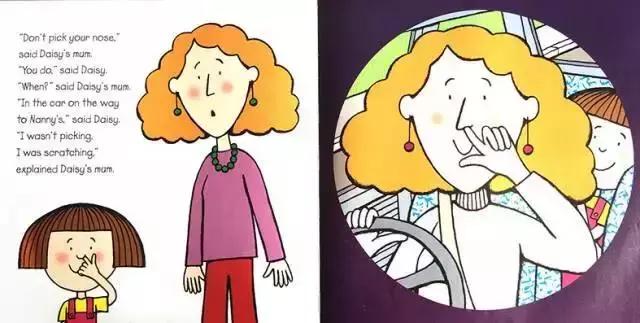
重点句型
SectionA
1.What did you do last weekend, Lucy?
露西,上周末你做了什么?
这个句子是谓语动词是实义动词的一般过去时的特殊疑问句用法。
特殊疑问词+did+主语+动词原形+其它?
e.g. What did you do lastnight?
昨天晚上你做了什么?
Where did he go last Sunday?
上个星期天他去哪儿了?
Who did she go with?
她和谁一起去的?
注意:(1)当特殊疑问词是充当主语时,则不需要使用助动词did,直接用特殊疑问词加动词的过去式来表达就可以了。
e.g. Who visited her grandma?
谁拜访了她的奶奶?
(2)当句子的谓语动词是be动词was/were时,特殊疑问句的结构为“特殊疑问词 was/were 其它?”
e.g. How was your weekend?
你周末过得如何?
How was the weather in Beijing?
那时候北京天气如何?
2.On Saturday morning, I played tennis.
(1)on 作介词,指的是“在某一天”或特指“在某一天的某个时候”
On Monday 在星期一
on October 1st 在10月1日
on Sunday evening 在星期天的晚上
on the afternoon of May 1st 在5 月1日的下午
on a cold winter morning 在一个寒冷的冬天的早上
(2)句中表示的是过去了的那个周末发生的事,所以动词play用过去时。
(3)play 玩,打,演奏
●当要表示演奏某种乐器时,要与定冠词the连用。
play the piano, play the violin…
●当它与表示球类运动的名词连用时,不用定冠词。 [来源:学playfootball, play baseball…
play with sb. 与……一起玩耍
play with sth. 玩……(东西)
3. How interesting! 多么有趣啊!
这是个感叹句。在英语中,感叹句有两种,what引导的感叹句和how引导的感叹句。这里我们先学习最简单的“How 形容词或副词 感叹号(!)”的感叹句,表示“多么……!”
e.g. Look at that bird. How beautiful!
看那只鸟,多么漂亮啊!
Some two hours ago we left Wuhan, but now we’re inTaiyuan. How fast!
差不多两个小时前我们才离开武汉,可现在我们在太原了!多快啊!
4. Yeah, it was good, but I’m kind of tired now. I stayed up late to watch the soccer game.是的,很棒,但是我现在稍微有点儿困了。我熬夜看足球赛了。
(1)kind of为固定搭配,表示“稍微,有点儿,有几分”。
e.g. I’m kind of interested. 我有点儿感兴趣。
It seems kind of ridiculous. 看上去有点怪怪的。
(2)stay up late 深夜不睡,熬夜
e.g. Don’t stay up late every day. It’s bad for your health. 不要每天熬夜。对你的身体不好。
5. Father Mouse shouted at the cat, “Woof, woof!” 老鼠爸爸冲着猫大声吼叫:“汪汪,汪汪!”
(1)woof是一个象声词,表示狗的叫声。再比如cluck, oink, quack, moo等。
(2)shout at sb.和shout to sb.的区别。
shout to sb.意为“向某人喊话,向某人大声叫喊”,目的是让别人听见。
e.g. The policeman shouted to the driver, “Stop ”. 警察向司机大声喊“停车”。
shout at sb.意为“冲某人大声吼叫,嚷嚷(有叫骂的含义)”。
e.g. The woman shouted at the man angrily. 那位妇女生气地向那位男士喊着。
6. Well, son, that’s why it’s important to learn a second language.所以嘛,儿子,这就是为什么学习一门外语很重要啦。
…it was important not to go near a snake, …重要的是不要靠近蛇。
●It is 形容词 to do sth.是英语中一个重要的形容词句型,十分常见。能够这样用的形容词除important外,我们学过的还有easy,difficult等,表示“做某事是重要、容易、困难的”等等。
e.g. It’s easy to run, but it’s not so easy to be the first.跑步很容易的,但要当第一名却不那么容易。
It’s difficult for me to study math.对我来说,学习数学好难啊。
Section B
1. As a special gift, our parents took us to India. 作为一份特殊的礼物,我父母带我们去了印度。
(1)此处介词as表示“作为……;当作……”,其后可以接职业、用途、特点等。用在句首时,这种短语的后面往往有逗号与语句的主体隔开。
e.g. As a student, I must work hard.作为一名学生,我必须努力学习。
(2)本句中动词take表示“带领”,take…to…则表示“带领某人去某处”。
e.g. On Sundays, the father would take his son to the park. 一到星期天,爸爸便会带他儿子去公园。
2. But I was so tired that I went to sleep early. 但是我太累了,所以早早就睡着了。
英语中“so 形容词 that句子”,表示“太……以至于……”。
e.g. I was so scared that I couldn’t move. 我是那么害怕,一动都不敢动。
The game is so interesting that I don’t want to stop playingit.这个游戏是如此有意思,以至于我都不想停下来。
The soup was so delicious that he drank it up. 汤是那么好喝,于是他喝了个精光。
3.When we looked out of our tent, we saw a big snake sleeping near the fire.
当我们向帐篷外面看去,我们发现一条大蛇正在篝火附近睡觉。
英语中表示感官的动词,比如see, hear, feel等动词后可以接动词的ing形式,表示“看见、听到、觉得某人或某物正在做某事”。
e.g. I can hear the children singing in the classroom.
我能听见孩子们在教室里唱歌。
I looked out the window and saw some boys playing soccer on the playground.
我往窗外望去,看见一些男孩子在操场上踢球。
My dad told me later that snakes don’t have ears but can feel things moving.
我爸爸后来告诉我说,蛇是没有耳朵的,但是它们能赶到东西的震动。






